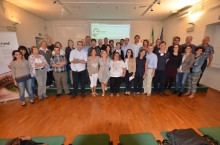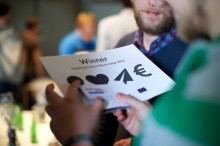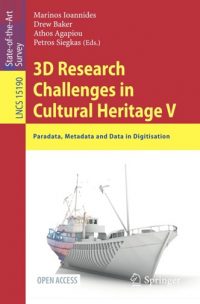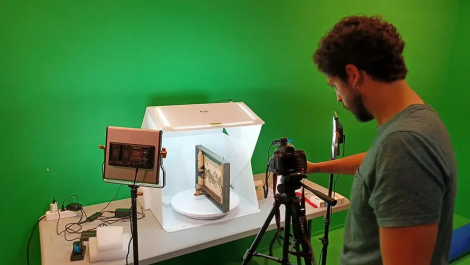-
Join the
Digital Meets Culture
Newsletter! -
Join the
Digital Meets Culture
Open Newsroom! If you have interesting news and events to point out in the field of digital cultural heritage, we are waiting for your contribution.
If you have interesting news and events to point out in the field of digital cultural heritage, we are waiting for your contribution.
-
Free text
-
-
Upcoming events
-
 Vila-seca, Catalonia, Spain. June 17-20, 2025
Vila-seca, Catalonia, Spain. June 17-20, 2025The ATLAS Annual Conference 2025 is taking place from 17 to 20 June 2025 in Vila-seca, Catalonia, organised by the ATLAS Association for Tourism and Leisure Education and Research. The theme of the event of this year is Tourist destinations … Continue reading →
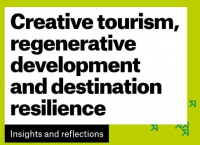 Launch of new book: Creative Tourism, Regenerative Development, and Destination Resilience
Launch of new book: Creative Tourism, Regenerative Development, and Destination ResilienceThe CREATOUR Observatory delivered the new interesting book Creative Tourism, Regenerative Development, and Destination Resilience. The book draws upon the international conference, “Creative Tourism, Regenerative Development, and Destination Resilience”, which was held 8 to 10 November 2022 in the Azores, … Continue reading →
Topic: EU projects
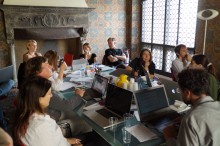
E-Space WITH is an innovative concept for an infrastructure, which exposes APIs from different portals and repositories. It allows the user to search content of interest from a single access point into different and disjointed repositories and databases such as Europeana, the DPLA Digital Public Library of America, YouTube.. and of course the Europeana Space own repository, currently under construction. Continue reading

In May, Europeana has launched its Business Plan 2015. This is the first year of the Europeana Strategy 2015-2020, which outlines how the company will transition into a multi-sided platform: a truly networked organisation working together to create the largest repository of trusted, accessible and re-usable digital heritage in the world. The Europeana Business Plan 2015 reflects this change in perspective. Continue reading
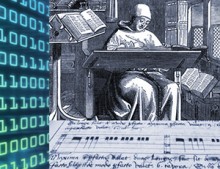
The deadline to submit proposals for the DiXiT Convention “TECHNOLOGY, SOFTWARE, STANDARDS FOR THE DIGITAL SCHOLARLY EDITION” has been extended to Thursday the 28th of May 2015. The call for paper is open to everybody (except DiXiT fellows). The … Continue reading
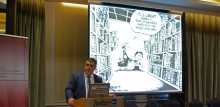
The fourth NALIS Forum (Sofia, 12 May 2015) concluded successfully, attended by many international experts from leading libraries and library networks, museums, universities and cultural organisations. Among the special guests, delegates of the Ministry of Education and the Ministry of Culture. Antonella Fresa of Promoter SRL took part in the conference as invited speaker. Lecturers (from Europe and USA) shared their experience in local and global collaboration (not only within the library community, but also within the IT community) in the framework of projects involving the digitisation of cultural heritage, creative re-use of digitised cultural contents and citizen participation. Continue reading

The Workshop will be a great opportunity to meet MSP members, procurement managers, policymakers and ICT suppliers to discuss how to effectively reduce lock-in by using Open Standards. Best practice examples have been carefully selected to match the needs and wants of all potential participants. Continue reading
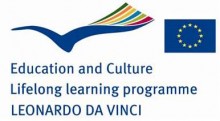
On 12th of May 2015, Sònia Oliveras from the Municipal Archive of Girona presented PREFORMA at the Study Visit of the Leonardo da Vinci Project in Girona. This study visit was developed through several workshops about digitalisation, publication in Europeana and digital preservation. Continue reading
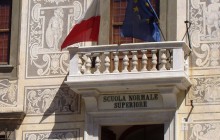
The Cloud Forward 2015 Conference, hosted by the Scuola Normale Superiore in Pisa from 6 to 8 October 2015, brings together experts from industry and academia to consider the future of cloud computing. The event is organised… Continue reading
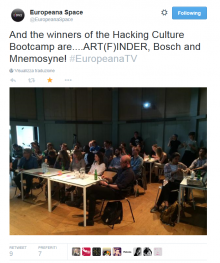
This weekend the first E-Space hackathon took place in Amsterdam, from the evening of the 8th until the 10th of May. The event, organised by the Europeana TV pilot of E-Space project, was challenging game and app developers, storytellers and interactive designers to create new multi-screen experiences with a focus on digitised historical footage. Winners will now fly to London for an intensive Business Modelling Workshop! Continue reading


